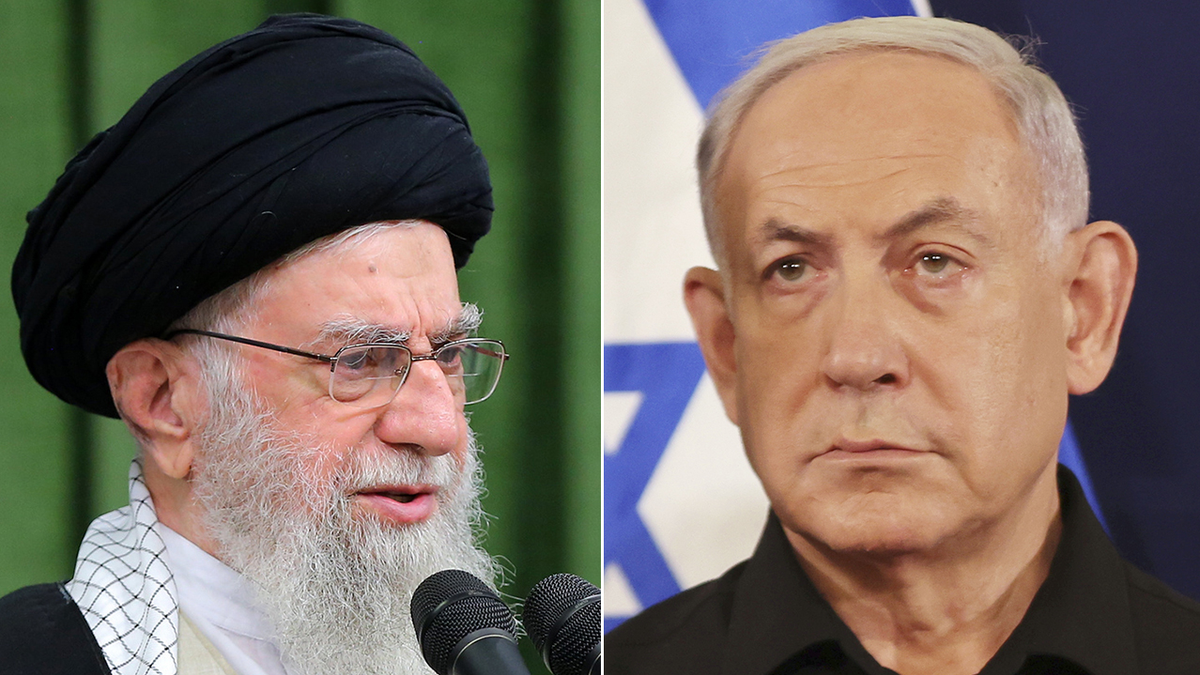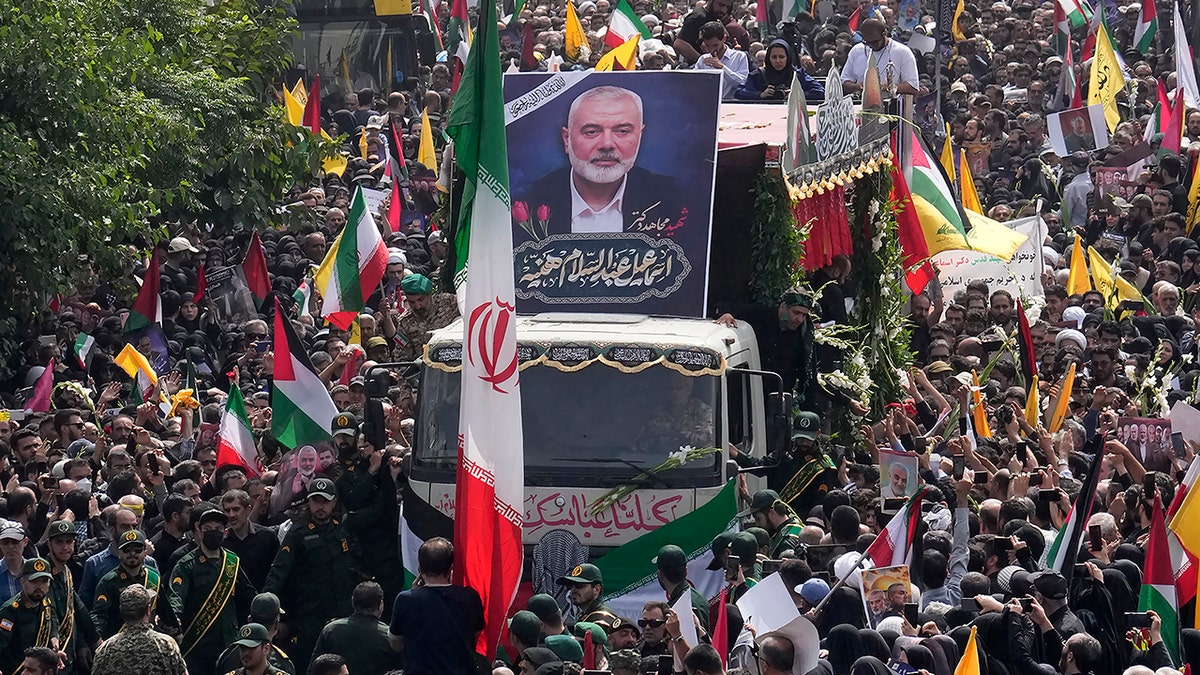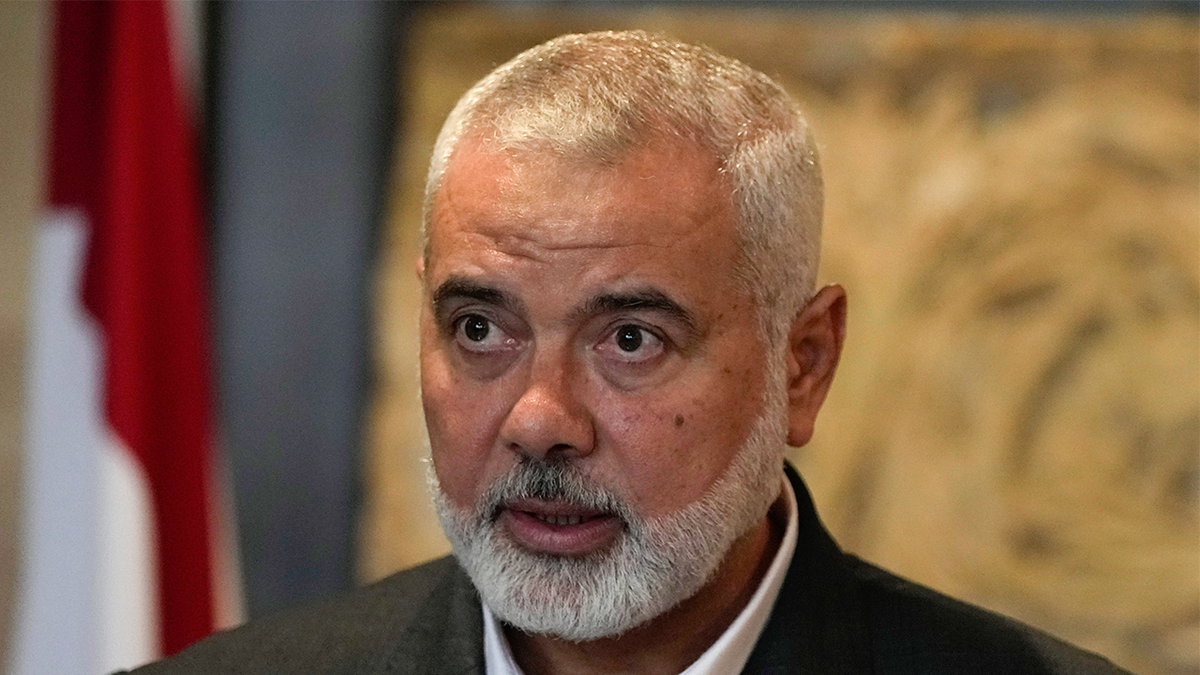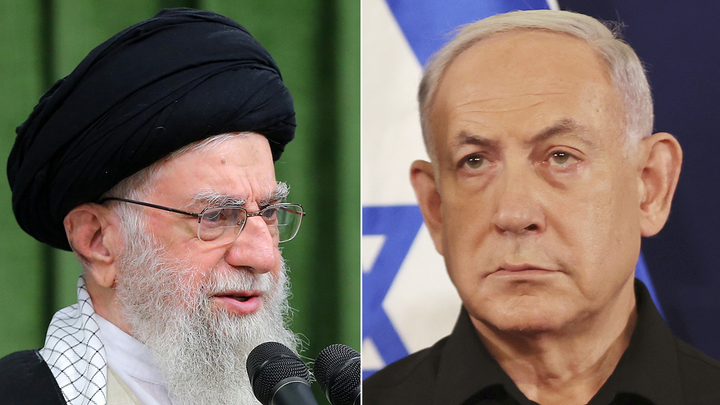Iran has been threatening a strike following assassination of Hamas’ Ismail Haniyeh in Tehran
Israel warns Iran, Hezbollah against attacks
A senior Iranian security official is warning that Iran will attack Israel if its talks with Hamas for a ceasefire in Gaza fall apart, a report says.
The official, speaking to Reuters, said Iran and its allies, including Hezbollah, would also launch a direct attack on the Jewish State if it believes Prime Minister Benjamin Netanyahu’s government is dragging out negotiations with the Palestinian terrorist group.
Only Israel and Hamas reaching a ceasefire deal would hold Iran back from a direct strike against Israel in the wake of the assassination of Hamas political chief Ismail Haniyeh in Tehran in late July, three senior Iranian officials told Reuters, but the news agency notes that the sources did not say how long Iran would let the talks progress before deciding to take any action.
Hamas said Sunday it would not participate in new negotiations for a ceasefire in Gaza this week unless mediators presented a plan based on previous talks. Talks are expected to resume on Thursday.
ISRAEL ACCUSES IRAN OF SMUGGLING WEAPONS INTO JORDAN AS REGION BRACES FOR POSSIBLE RETALIATORY STRIKE

Iranian Supreme Leader Ayatollah Ali Khamenei, left, and Israeli Prime Minister Benjamin Netanyahu. (Iranian Leader Press Office/Handout/Anadolu via Getty Images/Abir Sultan/Pool Photo via AP)
The developments come a day after White House National Security Communications Adviser John Kirby told reporters that “we do share the assessment made by our Israeli counterparts that something could happen, as soon as this week by Iran and its proxies.”
President Biden, in New Orleans for an event Tuesday, acknowledged to reporters a linkage between the ceasefire effort in Gaza and Iran’s threat to retaliate, and that he’s not giving up on reaching a deal.
“It’s getting harder,” Biden said when asked if a ceasefire deal was becoming a more distant possibility. “I’m not giving up. We’ll see what Iran does. We’ll see what happens.”
Asked if he expected Iran to hold off on a retaliatory strike if a ceasefire deal was reached, Biden said: “that’s my expectation.”
State Department spokesperson Vedant Patel said on Tuesday that, “I don’t want to speculate on what actions the Iranian regime might take, but I will say, as the Secretary [of State] has said repeatedly, no one benefits from any kind of retaliation. And what we’ve been engaged on, is intensive diplomacy with allies and partners, who, are helping us communicate that message to the region, including directly to Iran.”
IRAN COULD ATTACK ISRAEL SOON, SOURCES SAY, AS WESTERN POWERS ISSUE WARNING

Iranians follow a truck, center, carrying the coffins of Hamas leader Ismail Haniyeh and his bodyguard, during their funeral ceremony in Tehran, Iran, on Thursday, Aug. 1. (AP/Vahid Salemi)
“Everyone in the region should understand that further attacks only perpetuate conflict, instability and insecurity for everyone. And so what we’re focused on, is intensively on, de-escalation through diplomacy,” Patel added.
Iran’s president has also told Britain’s prime minister that Tehran considers retaliation against Israel over the killing of Haniyeh a right, and a way to discourage future aggression.
A Tuesday report by the official IRNA news agency said President Masoud Pezeshkian, in a late Monday phone conversation with Prime Minister Keir Starmer, said that a punitive response to an aggressor is “a right of nations and a solution for stopping crimes and aggression.”
The report said the two leaders discussed ways for restoring peace and stability in the region and the world as well as improving bilateral relations, without elaborating.

Ismail Haniyeh, the former political leader of the Palestinian militant group Hamas, in June 2021. His death in Tehran in late July this year has prompted concerns that Iran will strike back at Israel. (AP)
Starmer said in his own statement that he was deeply concerned by the situation in the region and called on all parties to de-escalate. During the 30-minute call with Pezeshkian, Starmer asked Iran not to attack Israel, adding that war was not in anyone’s interests.

